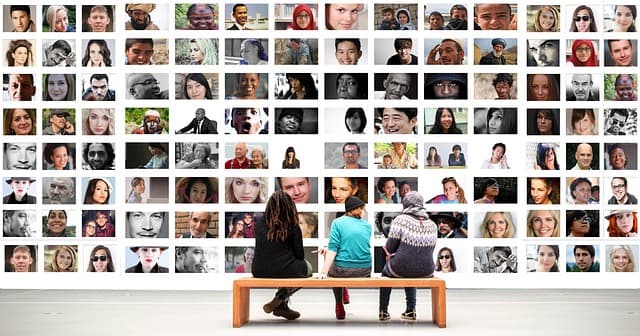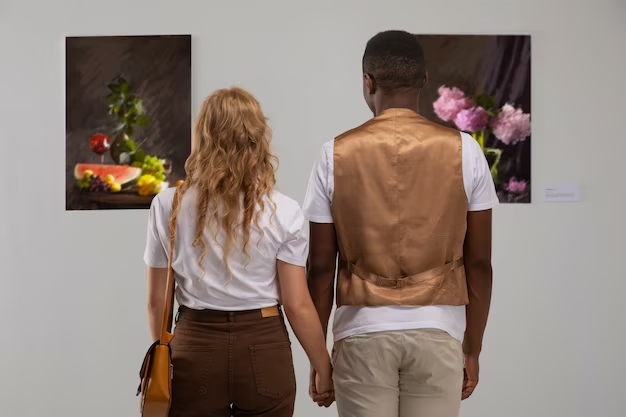
How First Impressions are Formed and Why They’re So Important
First impression is a person’s perception of others when meeting them, when their appearance and inner world are evaluated. It can be positive or negative. It is most often based on information received at the first meeting, but sometimes it can be made in absentia. For example, by stories or the public image of a person.
The first impression is very strong. So much so that even new information sometimes cannot change it.
How quickly a first impression is formed
According to some studies, just one tenth of a second is enough to form an opinion about the attractiveness, reliability, competence and aggressiveness of the interlocutor. And the longer we communicate with someone, the more confident we are in our first impressions.
This rapidity is due to the evolutionary past. Our distant ancestors had no time to have conversations with suddenly appeared relatives: it was necessary to quickly understand, friend or foe in front of you.
What affects the first impression
In its formation is involved in the prefrontal cortex of the brain, which is also largely responsible for the personality traits of people. Of greatest importance are such external signs of another person: facial features, voice intonation, attractiveness, displayed emotions. In addition, we pay attention to the behavior, style of dress, postures that the interlocutor takes.
Often the first impression is affected by a hidden attitude, which is not even realized. This means that perception is influenced not only by the image and actions of the person we see, but also by our own experience, perceptions and prejudices.
Why first impressions are important
Because on its basis we make conclusions about how much we can trust a new acquaintance, whether he is sympathetic to us, whether he does not carry a threat, whether he is higher in status. Tendency to aggression, competence, sexual orientation, intelligence – we also form an opinion about all this and much more in the first seconds of the meeting.
The consequences of these conclusions can lead very far. After all, first impressions affect the attitude to a person both at the current moment and in the future.
For example, there is a stereotype that beautiful means good. We treat physically attractive people better, believing that they have many positive qualities, as opposed to those who, in our opinion, “unsympathetic”. It gets to the point that handsome people have an easier time getting a discount or a job, and are more lenient with teachers and even judges.
Why first impressions can be deceiving
Because it is formed too quickly and is based on overgeneralizations. For example, narcissists can seem quite disposable people, and only then their behavior begins to repel. And if a person looks glum and unsociable, it does not mean that he can not be good-natured and open.
Why the first impression is so strong
In psychology there are two points of view why this happens. According to the first, people compare any new information with the first impression and reject those facts that contradict it. Thus, if someone seems good to us, we will perceive all his disreputable deeds as accidental or forced necessity.
According to the second theory, people pass new information through the image formed by the first impression. That is, if we think someone is bad, then his good actions will seem like attempts to hide his true nature and put our attention to sleep.
How to make a good first impression
People usually underestimate themselves and think that the first meeting went worse than it really is. However, a few tips on how to improve your impression can still be helpful.
- Prepare for the meeting in advance
Do this if the conversation is going to be difficult. This way, you’ll show that you’re genuinely interested and knowledgeable about the topic. For example, it is rather presumptuous to go to a job interview without at least familiarizing yourself with the requirements for the applicant and information about the employer.
If you need to prepare for a personal meeting, for example, a date, try to learn more about the potential partner. Try to look through his social networks and find common interests.
- Watch yourself and your appearance
Realize where you are going and look appropriate. People are unlikely to appreciate your Hawaiian shirt and short shorts if the meeting was scheduled at a theater.
Also watch what you say and write. Try not to make mistakes, including in your social media profile.
Before the responsible event, it doesn’t hurt to get a good night’s sleep, either. Studies show that looking sleepy decreases your attractiveness to other people. This is another reason to establish a routine of day and rest.
- Stay confident
Another thing to pay attention to is your body language – it should tell you that you’re comfortable. For example, before a meeting, you can demonstrate a “strong stance”: sit up straight, take big steps, square your shoulders. Some researchers believe this helps you feel more confident.
- Show your best qualities
Try to capitalize on your strengths. Ask your friends what you should include in them, or pay attention to what you are most often complimented on. But be careful: loved ones may sugarcoat your virtues because they love you, but others can be insincere, such as ingratiating themselves to you.
- Demonstrate that you are a good conversationalist
Listen to your interlocutor, try to really get into what he says, show genuine interest. Do not interrupt, let them know you are interested (e.g. nod), do not try to finish sentences. Do not try to tell too much about yourself or overwhelm a person with deep knowledge.
And, of course, develop yourself to be an interesting and attractive person.


